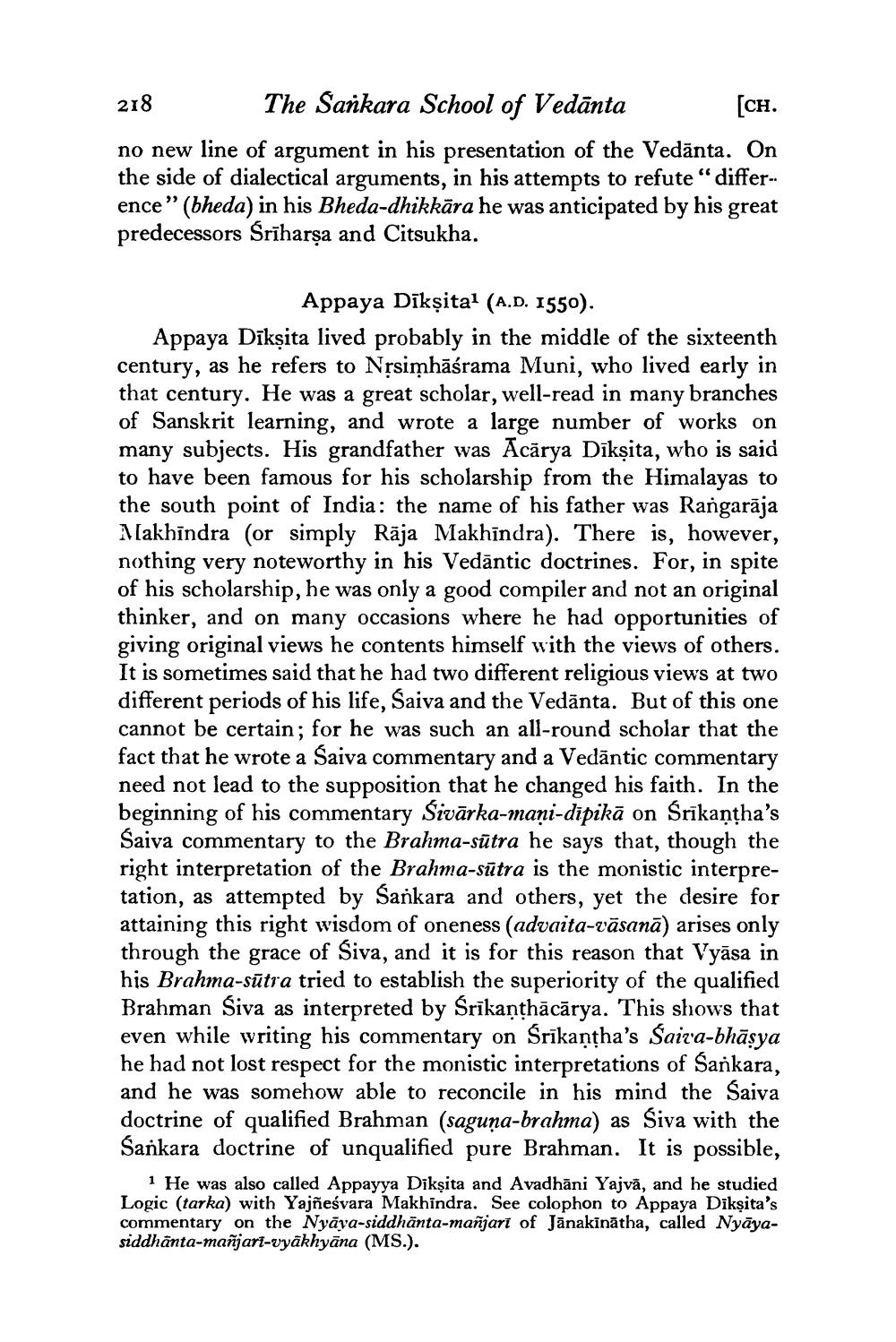________________
218
The Sankara School of Vedānta
[CH. no new line of argument in his presentation of the Vedānta. On the side of dialectical arguments, in his attempts to refute" differ-- ence" (bheda) in his Bheda-dhikkāra he was anticipated by his great predecessors Śrīharșa and Citsukha.
Appaya Dīkṣital (A.D. 1550). Appaya Dīkṣita lived probably in the middle of the sixteenth century, as he refers to Nțsimhāśrama Muni, who lived early in that century. He was a great scholar, well-read in many branches of Sanskrit learning, and wrote a large number of w many subjects. His grandfather was Ācārya Dīkşita, who is said to have been famous for his scholarship from the Himalayas to the south point of India: the name of his father was Rangarāja Makhīndra (or simply Rāja Makhīndra). There is, however, nothing very noteworthy in his Vedāntic doctrines. For, in spite of his scholarship, he was only a good compiler and not an original thinker, and on many occasions where he had opportunities of giving original views he contents himself with the views of others. It is sometimes said that he had two different religious views at two different periods of his life, Saiva and the Vedānta. But of this one cannot be certain; for he was such an all-round scholar that the fact that he wrote a Saiva commentary and a Vedāntic commentary need not lead to the supposition that he changed his faith. In the beginning of his commentary Sivārka-maņi-dipikā on Śrīkantha's Saiva commentary to the Brahma-sūtra he says that, though the right interpretation of the Brahma-sūtra is the monistic interpretation, as attempted by Sankara and others, yet the desire for attaining this right wisdom of oneness (advaita-vāsanā) arises only through the grace of Siva, and it is for this reason that Vyāsa in his Brahma-sūtra tried to establish the superiority of the quali Brahman Siva as interpreted by Śrīkanthācārya. This shows that even while writing his commentary on Śrīkantha's Saira-bhāsya he had not lost respect for the monistic interpretations of Sankara, and he was somehow able to reconcile in his mind the Saiva doctrine of qualified Brahman (saguna-brahma) as Siva with the Sankara doctrine of unqualified pure Brahman. It is possible,
1 He was also called Appayya Dikşita and Avadhāni Yajvā, and he studied Logic (tarka) with Yajñeśvara Makhindra. See colophon to Appaya Dikṣita's commentary on the Nyāya-siddhānta-mañjari of Jānakinátha, called Nyāyasiddhanta-mañjari-vyakhyāna (MS.).




